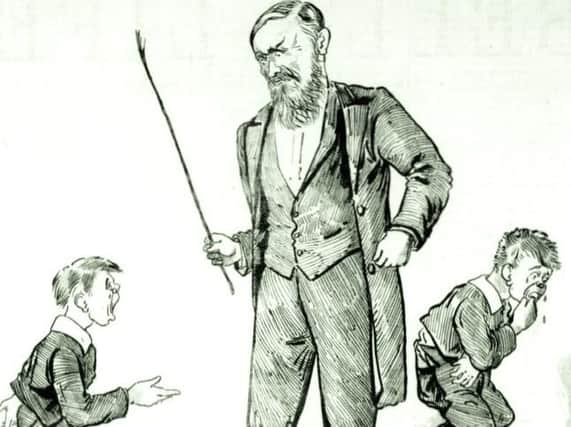Preston headteacher faces court after brutal caning but is acquitted


In mid-December 1877 the Rev. Alfred Beaven, headmaster of Preston Grammar School, appeared before the magistrates at the Preston Police Court accused of assaulting a pupil.
The first witness called was schoolboy William Paley, of the Preston cotton family, who told the court that on the last Monday afternoon of November he was in Mr. Wadsworth class and had handed in some English to Latin conversion work that the master described as a terrible submission.
Advertisement
Hide AdAdvertisement
Hide AdAs a consequence the Rev. Beaven was called and he was taken to a room where corporal punishment was handed out. According to the lad the Rev. Beaven told him he would be punished for doing the Latin exercise badly and he opted to have the cane to his rear rather than his hands as the last time he had been caned in that way he had suffered blisters.
Then leaning over a form he was given four strokes of the cane to his buttocks.
When he returned home, in pain from his ordeal, he told his mother about his punishment and she took him to Dr. Pilkington who was the next witness called. He explained that he had examined the lad and found four clear marks on his buttocks and concluded that the strokes must have been severe to cause such injuries through clothing.
Mr. Watson, who addressed the court for the defendant, said the pupil was a fine lad, but seemed to be spoilt at home.
Advertisement
Hide AdAdvertisement
Hide AdThe Rev. Beaven was doing his best to make a man of the lad without violence, but found it necessary to use the cane, which every schoolmaster was justified in doing.
The lad’s father John Paley had taken umbrage at the Rev. Beaven’s handling of his son and this prosecution was a result of their disagreement. He commented that the Rev. Beaven got no pleasure in punishing lads, but aware of competing with other public schools he had to make the boys work hard. Three other lads had been beaten quite severely that same afternoon, but had made no complaint to the school.
Mr. Wadsworth was next called and he stated that the work submitted by Paley was done carelessly and he deserved punishment. Another master Mr. Elliott then testified that the lad had been reported seven or eight times recently and twice he had been let off by the headmaster although he deserved punishment. The headmaster always being willing to hear the circumstances and determine what was to be done.
The magistrates after a few minutes deliberation returned to court and announced that they were unanimous in the opinion that there was no proof of undue chastisement and dismissed the summons.
Advertisement
Hide AdAdvertisement
Hide AdThe following week letters appeared in the local press in favour of the verdict delivered, with a number of prominent citizens expressing their support for the Rev. Beaven and the manner in which he instilled discipline.
One parent commenting that the only way to control any unruly children was by use of the cane. Corporal punishment in state schools was only banned in 1986 and in private schools in 1999.
An often controversial character the Rev. Beaven served as headmaster at the Preston Grammar School from 1874 to 1898. The first recorded headmaster was Richard Marschall in 1399. The Grammar School previously in Stoneygate moved to new premises in 1841 at the corner of Cross Street.